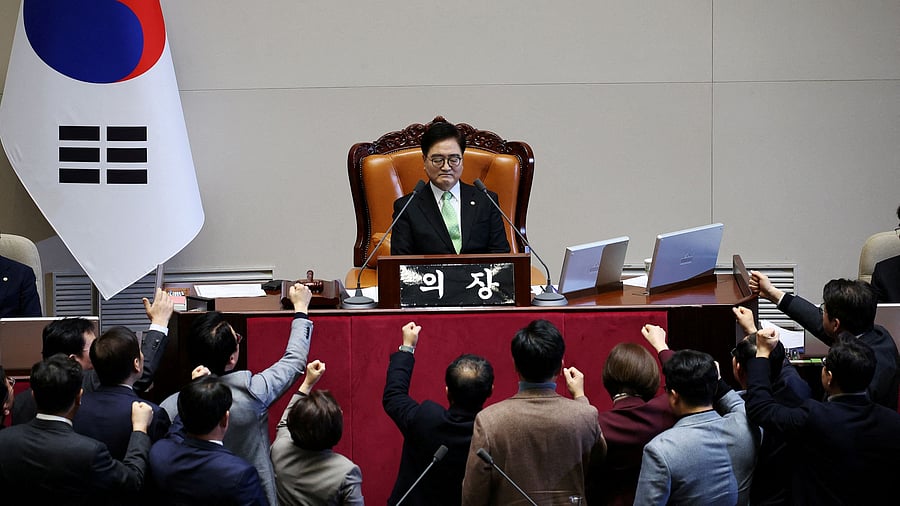
South Korea’s ruling People Power Party lawmakers protest against National Assembly Speaker Woo Won-shik during the impeachment vote of a plenary session for South Korean acting President and Prime Minister Han Duck-soo at the National Assembly in Seoul, South Korea, December 27, 2024.
Reuters
Seoul: South Korea's leadership crisis deepened Friday after lawmakers voted to oust a second head of state, the acting president, in less than two weeks.
The move prolonged the political vacuum that has gripped South Korea since President Yoon Suk Yeol shocked the country this month by briefly putting it under military rule for the first time in decades.
Lawmakers impeached and suspended Yoon on Dec. 14 over the martial law move, and Prime Minister Han Duck-soo stepped in as acting president. But Han's tenure would also prove short-lived, as opposition lawmakers voted Friday to impeach Han as well.
This was the first time South Korea had impeached an interim leader. The political uncertainty has pushed business and consumer confidence lower and caused the currency, the won, to plunge.
Han's impeachment meant that the finance minister and deputy prime minister, Choi Sang-mok, would be next in line to be named acting president. But like Han, Choi has no electoral mandate.
"The most important thing right now is to minimize the confusion in state affairs," Choi said after assuming his role as interim leader. "The government will do its best to stabilize them."
The move to impeach Han on Friday came after he refused to appoint three judges to fill vacancies in the Constitutional Court, the body that will be deciding whether to reinstate or formally remove Yoon.
At the heart of the matter is how the court might rule on Yoon's impeachment. Six or more justices of the nine-member court must vote in favor of impeachment to remove Yoon from office. The top court currently has only six justices, after three others retired earlier this year, so the impeachment could be overturned with just one dissenting voice in Yoon's trial.
Yoon has vowed to overturn his impeachment at the Constitutional Court. But the opposition wanted him ousted through a full nine-justice Constitutional Court as soon as possible and described Han's refusal to appoint the justices as a delaying tactic by the governing camp.
Yoon's trial started Friday. He did not attend court, but was instead represented by his lawyers.
On Friday, police raided a presidential safe house where Yoon was alleged to have met with officials to discuss imposing martial law, according to the Korean news agency, Yonhap.